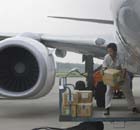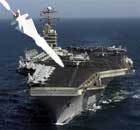Economy
China defends iron ore benchmark pricing system
(Xinhua)
Updated: 2010-04-15 23:29
 |
Large Medium Small |
BEIJING - China's Ministry of Commerce Thursday stepped up its defense of the iron ore benchmark system in the face of moves by the big three international mining giants to end the decades-old pricing mechanism.
Market analysts believe the quarterly-based, indexed or spot pricing mechanism would replace the annual pricing system after Vale of Brazil, Rio Tinto and BHP Billiton, which account for 68.5 percent of the global iron ore shipments, announced their intentions to end the benchmark pricing system. China's booming iron ore market would tend to be more rational as the nation had diversified supply channels at home and abroad, said Yao.
Iron ore source countries had risen from 10 to 20 in recent years, said Yao.
He said Chinese steel mills had reduced reliance on imports, lowering the proportion of iron ore imports from 70 percent to 50 to 60 percent this year, as the number of domestic suppliers rose. The world's largest iron ore importer, China imported 155 million tonnes of ore in the first quarter, with an average price of 96 US dollars per tonne, up 20.7 percent over the same time last year, said Yao.
Last year's iron ore price negotiations reached an impasse in June after China Iron and Steel Association (CISA) insisted on a 45 percent discount over 2008 prices. Before that, a 33 percent benchmark price reduction had been agreed by BHP, Rio and Vale with other Asian steel mills. As of now, the two sides have not made any progress for this year's price talk.
The country imported a record 630 million tonnes of iron ore in 2009, 68 percent of the world's total shipments. Imports from Australia and Brazil accounted for 64.4 percent of the total, according to Customs statistics.












